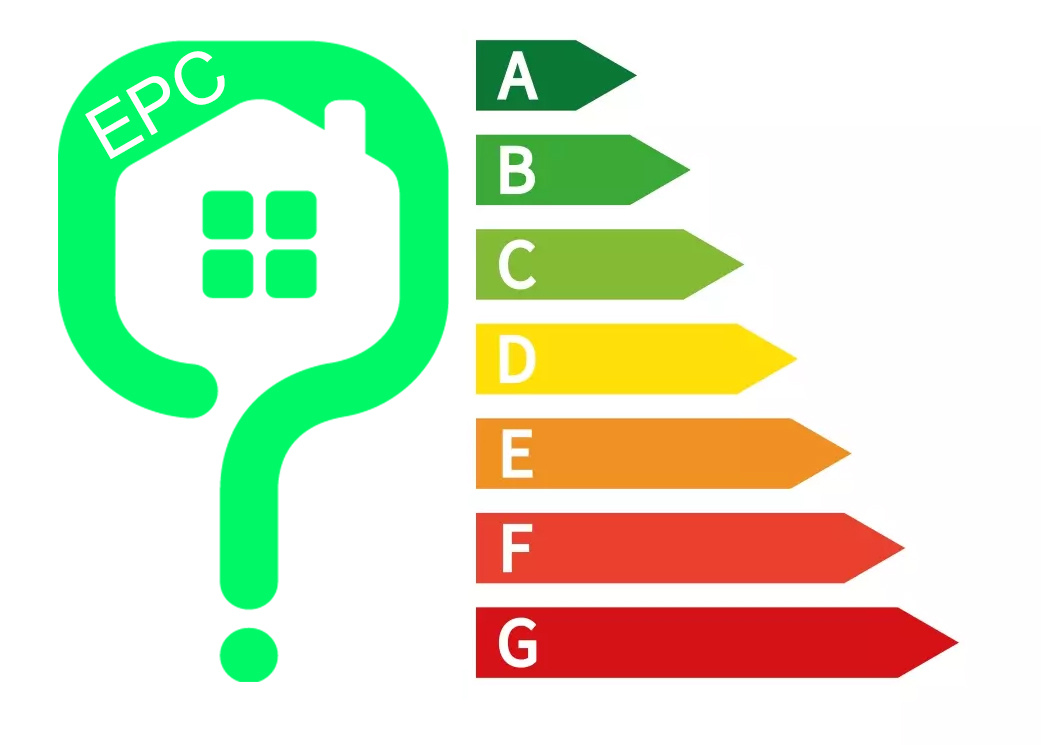EPC Rating
Is an EPC Rating important? The better the EPC rating the cheaper the less your cost of living is going to be. So an A rated house is going to be much cheaper to run than a G rated house.
- Energy Efficient Houses have lower energy bills so the efficiency of your home will lower your usage consumption and reduce your bills.
- Energy rated A & B houses have a higher value. Not only when you are thinking of selling should you focus on the EPC.
- Did you know that you can with some lenders get a Lower mortgage if the EPC is A or B.
- Helping the planet is so important and the better the EPC, the Lower your carbon footprint will be which means lower your carbon emissions.

Understanding EPC (Energy Performance Certificate) for Buying and Selling Property in the UK
An Energy Performance Certificate (EPC) is a vital document that provides crucial information about the energy efficiency of a property. Whether you're buying or selling a house in the UK, an EPC plays a significant role in legal compliance and ensuring transparency. Here's everything you need to know about EPCs, their benefits, and their role in property transactions:
What is an EPC? An Energy Performance Certificate is a standardized report that rates a property's energy efficiency and environmental impact. It includes details about the property's current energy usage, potential energy-saving improvements, and recommendations for enhancing efficiency. The certificate assigns a rating from A (most efficient) to G (least efficient).
Benefits of Having an EPC:
1. Legal Requirement: In the UK, it's mandatory to have a valid EPC when selling or renting out a property. This legal requirement ensures that potential buyers and tenants have access to information about the property's energy performance.
2. Transparency: An EPC provides clear insights into the energy efficiency of a property, helping potential buyers or tenants make informed decisions. It outlines the estimated energy costs associated with the property, allowing individuals to budget appropriately.
3. Potential Cost Savings: For sellers, an EPC can identify energy-saving improvements that can increase the property's appeal to buyers. Implementing these improvements can lead to reduced energy bills, potentially making the property more attractive.
4. Environmental Impact: By promoting energy-efficient properties, EPCs contribute to reducing carbon emissions and environmental impact. This aligns with the UK's commitment to sustainability and green living.
5. Marketing Advantage: For sellers, a higher EPC rating (indicating better energy efficiency) can be a unique selling point. It can attract environmentally-conscious buyers who value cost-effective, eco-friendly homes.
Role in Buying and Selling:
Selling a Property: When selling a property in the UK, you must commission an accredited Domestic Energy Assessor to conduct an EPC assessment. The resulting certificate should be made available to potential buyers. It's advisable to make the EPC easily accessible in property listings, allowing buyers to review energy efficiency details upfront.
Buying a Property: As a buyer, reviewing the property's EPC can help you assess its energy efficiency and associated costs. This information allows you to factor in potential energy expenses when considering your overall budget and decision to buy.
EPC Conclusion: In the realm of UK property transactions, an Energy Performance Certificate (EPC) is a legal and beneficial document that supports transparency, cost savings, and environmental consciousness. Both buyers and sellers should embrace the insights provided by the EPC to make informed choices that align with their needs and values. Whether you're aiming for an energy-efficient home or ensuring compliance, the EPC is a valuable tool in the real estate journey.